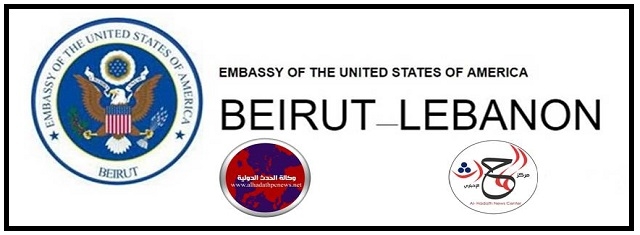News
Under Secretary of State Shannon Concludes Visit to Lebanon
Under Secretary of State Shannon Conclud

Secretary of State
USPA NEWS -
Under Secretary of State for Political Affairs Thomas A. Shannon, Jr. concluded a two-day visit to Lebanon today. During his visit, Under Secretary Shannon met with a range of representatives from Lebanon´s national and municipal institutions and engaged with the Lebanese people.
Under Secretary Shannon met with Speaker of Parliament Nabih Berri, Foreign Minister Gebran Bassil, Lebanese Armed Forces Commander Jean Qahwagi, Central Bank Governor Riad Salameh, and UN Special Coordinator for Lebanon Sigrid Kaag. Shannon also visited the National Museum of Beirut with Minister of Culture Ronny Arayji and met with a group of Lebanese Parliamentarians who visited the U.S. earlier this year.
On September 2, Under Secretary Shannon visited the Bekaa Valley, where he discussed the challenges facing local communities hosting Syrian refugees with municipal officials. Under Secretary Shannon reiterated the U.S. government´s unwavering commitment to continue its support to Lebanese host communities. In this regard, he announced a $20 million grant to support UNICEF´s school retention activities for academic years 2016-2018. This initial investment from the U.S. government ensures that at least 17,000 children who are at-risk of falling behind in their formal education programs are provided with adequate support to succeed.
Finally, Under Secretary Shannon toured U.S. assistance projects in the Bekaa Valley, including a USAID-rehabilitated water reservoir that provides potable drinking water to more than 8,000 Lebanese residents and Syrian refugees of Ablah. Under Secretary Shannon also visited an informal tented settlement where 200 Syrian refugees reside, and where many of the services to address the protection, shelter, and basic needs of refugees are provided with U.S. government support. He participated in a focus group at the settlement´s community center with outreach volunteers who come from refugee communities and act as a link between humanitarian agencies and refugees.
Liability for this article lies with the author, who also holds the copyright. Editorial content from USPA may be quoted on other websites as long as the quote comprises no more than 5% of the entire text, is marked as such and the source is named (via hyperlink).





